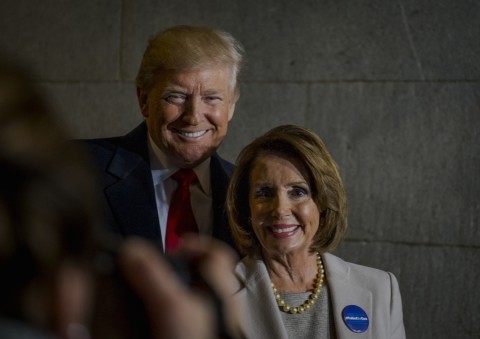
Divided government is returning to Washington. The Democratic takeover of the House of Representatives marks the end of a period of one-party control. Now the Trump administration will face something new: congressional oversight. The House GOP leaders who have refused to exercise this power are about to turn their gavels over to Democrats, who can finally initiate the investigations they’ve been requesting for months. Meanwhile, the president’s party no longer has the power to enact partisan legislation.
Will the legislature do any legislating at all? The new Congress might pass bipartisan bills—small ones built on narrow consensus, larger ones built on compromise. It might exist in a state of gridlock, with the Senate confirming the president’s appointees and the House investigating his scandals but no one passing any laws. Perhaps there will be a mix of the two, cooperation here and standoff there.
Read our latest issue or browse back issues.
Bipartisan cooperation has long been idealized in American political culture. More recently, so has its converse: intransigent, sand-in-the-gears resistance—the approach Republicans took during the last administration and many Democrats would like to take now.
Neither idea constitutes a moral vision for politics. Compromise, cooperation, moderation—these are important instruments for practicing politics well. They are not core virtues. The same is true of resolute opposition, of digging in your heels.
A moral vision for politics is more concerned with the people our laws affect than with the people who do or do not cooperate in making them. Americans don’t share a single moral vision, of course, and nor do all Christians. But any Christian moral vision has to place a high priority on the concerns of Jesus for the poor, the sick, people with disabilities, and those our society leaves behind. The Poor People’s Campaign offers a good example of how this kind of vision can be focused on issues, not party gamesmanship. Whatever their moral vision, legislators should defend their actions on its terms—not with calls to the partisan barricades, and not with paeans to compromise.
Should our new divided government make deals to enact bipartisan laws? That depends on what’s in those deals and those laws. Would an infrastructure bill invest meaningfully in a sustainable future, or just add lanes to highways in swing states so politicians can fight for the credit? Would a prescription drug bill take on industry profits on behalf of the sick, or would lobbyists render it weak and ineffective? And what price will the president require for any cooperation with Democrats—that they go easy on oversight? Or merely that they restrain their urge to grandstand about it?
Compromise can soothe, and opposition can galvanize. But we don’t need either one for its own sake. What we need is leadership rooted in moral vision, with the clarity to know when a flawed bill is worth passing and when the least-bad option is to do nothing. Working across the aisle is not a moral vision. Neither is refusing to.
A version of this article appears in the print edition under the title “Compromise or gridlock?”





